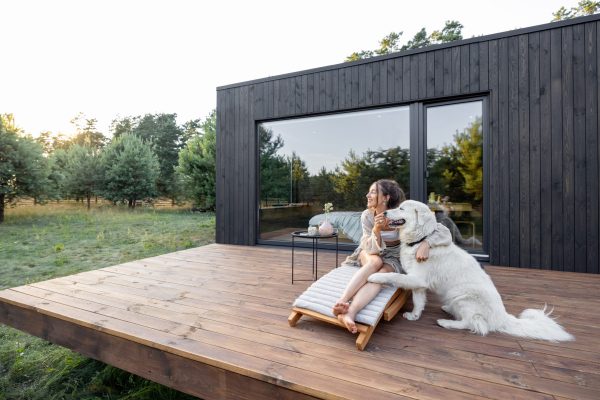A vacation home can be a dream come true. It might be a cabin in the woods, a beach cottage, or a lakefront retreat. The idea of having a second home for peaceful getaways is exciting. But before you buy, it’s important to make sure you can truly afford it. A vacation home comes with more than just the listing price. There are extra costs and responsibilities that many buyers don’t fully expect.
Here are key things to consider before you make the leap.
Know All the Costs Up Front
The sale price is just one part of the total cost. In addition to your mortgage, you will likely have property taxes, insurance, utility bills, and ongoing maintenance. If the home is in a high-demand area, taxes and insurance can be higher than you’re used to.
You will also need to think about maintenance. A home that sits empty for part of the year can actually need more care. You might need to pay for landscaping, pest control, snow removal, or security systems. If something breaks while you’re away, you’ll have to find and pay local help to fix it.
Take time to add up all of these expenses. Reach out to other homeowners in the area and ask what they typically pay each year to maintain their property.
Put Your Retirement and Emergency Funds First
Before spending money on a second home, take a close look at your financial foundation. Ask yourself if you have enough saved for retirement and whether you have a solid emergency fund in place.
Buying a vacation home should come after your essential financial goals are already met. That means having money for daily living, health care costs, and unexpected events. If you are dipping into retirement savings or taking on debt to buy a second home, it could affect your financial stability.
Your peace of mind in retirement matters more than owning a getaway spot. Make sure the basics are covered first.
Think About How Often You’ll Use It
It’s easy to imagine spending lots of time at your vacation home. But will you actually use it as much as you think? Travel costs, weather, and other life events might limit how often you visit.
Before you buy, take an honest look at how often you’ll really go. You might even compare the cost of renting a similar place for a few weeks each year. In many cases, it’s cheaper and easier to rent when you want to travel instead of owning and maintaining a second property full time.
Don’t Count on Rental Income
Some buyers hope to rent out their vacation home when they’re not using it. While rental income can help with expenses, it’s not always dependable. Local laws may limit how often you can rent. You’ll also need to handle bookings, cleaning, and repairs — or pay someone to manage those tasks.
Even in popular locations, rental demand can drop. Weather events, economic slowdowns, or changes in tourism trends can all affect income. If you do rent it out, treat any money you earn as a bonus — not something you rely on to cover your bills.
Understand the Tax Side of Things
Owning a second home can affect your taxes. If you rent it out, you may have to report the income and track your expenses. You might also face capital gains taxes when you sell the property.
You could lose some tax deductions, or you might need to handle different rules for your primary and secondary homes. The best thing to do is talk to a tax expert before buying. That way, you know exactly what to expect.
Check How It Fits Into Your Long-Term Plan
A vacation home should make sense not just today, but years from now. Think about your future needs. Will this home still fit your health, your travel style, and your budget five or ten years from now?
If you plan to travel more, move closer to family, or simplify your lifestyle, a vacation home could become more of a burden than a joy. Be sure it fits into your bigger picture before making the commitment.
Final Thoughts
Buying a vacation home is a big step. It can offer rest, fun, and great memories. But it can also bring hidden costs, stress, and long-term responsibilities.
Before you buy, take a hard look at your finances. Make sure your retirement is secure, your savings are strong, and that the home truly fits your lifestyle. A clear mind and careful planning will help you decide if a vacation home is really the right move for you.
Sources:
https://www.bankrate.com/real-estate/costs-of-owning-a-vacation-home/
https://www.irs.gov/taxtopics/tc415
https://www.investopedia.com/articles/personal-finance/121015/5-mistakes-avoid-when-buying-vacation-home.asp
https://www.nerdwallet.com/article/mortgages/should-you-buy-a-vacation-home
https://www.forbes.com/sites/forbesrealestatecouncil/2023/06/21/things-to-consider-before-buying-a-second-home/

Post Comment